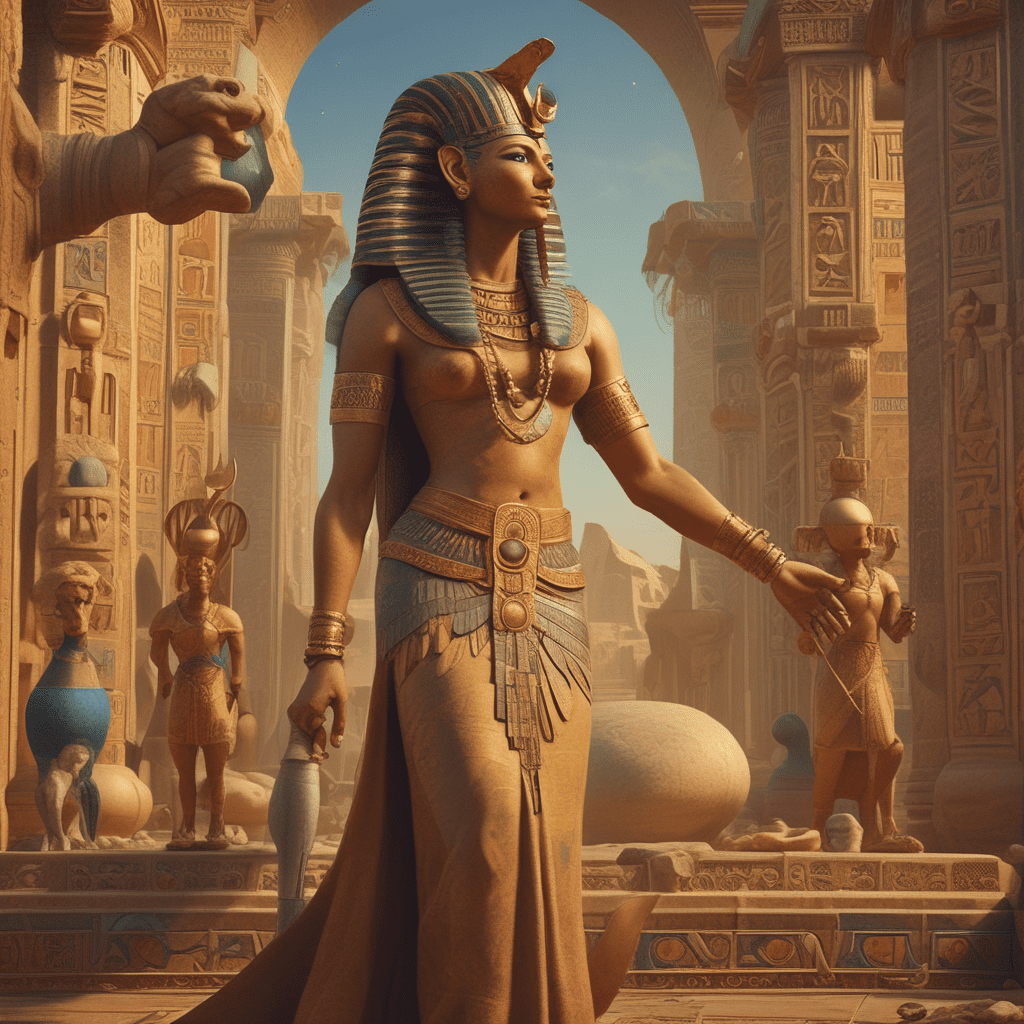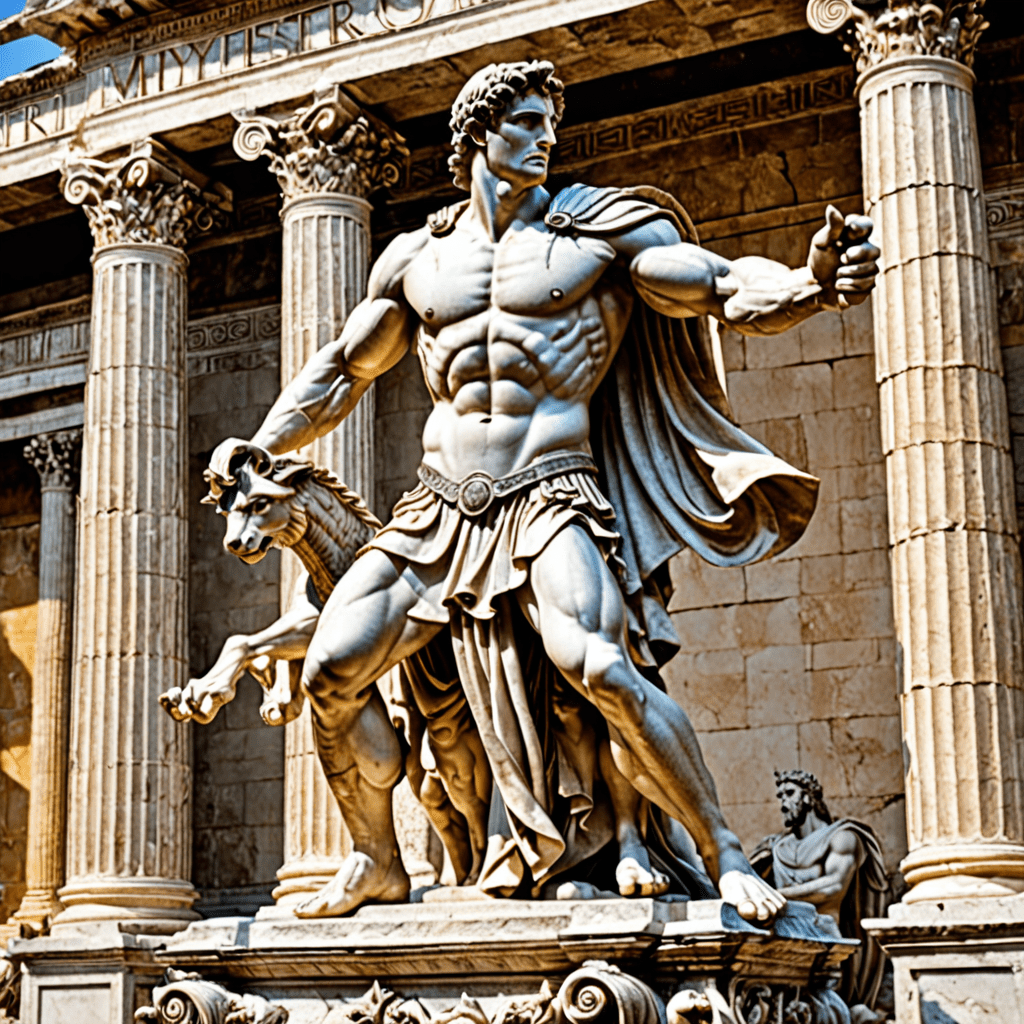The Myth of the Goddess Tefnut in Ancient Egypt
Who is Goddess Tefnut?
In ancient Egyptian mythology, Tefnut is a significant goddess associated with moisture, rain, and dew. She is often depicted as a lioness or as a woman with the head of a lioness. Tefnut was considered one of the primeval deities, representing the elements of moisture and fertility in the cosmos.
What is the Role of Goddess Tefnut?
Tefnut played a crucial role in Egyptian mythology as the daughter of the sun god Ra. Along with her brother Shu, she was believed to be one of the first beings created by Ra. Tefnut’s presence brought forth balance and order in the world, and her association with moisture symbolized the life-bringing force of the Nile River’s annual floods that sustained Egyptian civilization.
Symbolism and Worship of Tefnut
The lioness-headed goddess Tefnut symbolized power, protection, and ferocity. She was honored through rituals and offerings, especially during times of drought when the ancient Egyptians believed her intervention could bring much-needed rain. Tefnut’s worship was vital for agricultural prosperity, as the fertility of the land depended on the nourishing waters she represented.
The Tale of Tefnut’s Departure and Return
According to myth, Tefnut once grew discontent with humanity’s actions and decided to abandon the earth. Her departure caused chaos and dryness until her father Ra sent Thoth, the god of wisdom, to retrieve her. Through Thoth’s persuasion and wisdom, Tefnut returned to Egypt, restoring balance and fertility to the land.
FAQs about the Myth of Goddess Tefnut in Ancient Egypt
Who is Goddess Tefnut in Ancient Egyptian mythology?
Tefnut is a key deity in Ancient Egyptian mythology, known as the goddess of moisture, rain, dew, and moisture. She is often depicted as a lioness or as a woman with a lioness’s head. Tefnut is one of the deities associated with the concept of creation in Egyptian mythology.
What is the significance of Goddess Tefnut in Egyptian mythology?
Goddess Tefnut played a crucial role in the Egyptian creation myth. According to the myth, she was created by the god Atum-Ra and is considered one of the first deities in existence. Tefnut’s presence symbolizes the life-giving and nourishing qualities of moisture and water, essential for fertility and growth in the ancient Egyptian civilization.
How is Tefnut’s role connected to other Egyptian deities?
In Egyptian mythology, Tefnut is often linked to her brother and husband, Shu, the god of air. Together, they are believed to have produced two other important deities, Geb (the earth god) and Nut (the sky goddess). The relationships between these deities reflect the ancient Egyptians’ beliefs about the fundamental aspects of the natural world.



